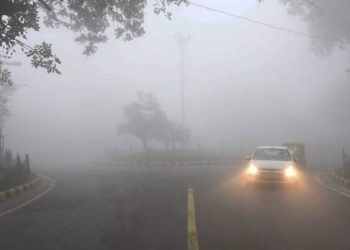A significant public interest litigation (PIL) has been filed in the Orissa High Court by Advocate Shiba Shankar Mohanty, demanding the identification and deportation of illegal Bangladeshi immigrants residing in Odisha.
The petition also seeks the cancellation of government benefits, such as Aadhaar cards, voter IDs, and ration cards, allegedly obtained fraudulently by these immigrants.
The PIL names key authorities as respondents, including the State Chief Secretary, Home Department Secretary, Director General of Police, Commissionerate Police, Union Home Ministry Secretary, and External Affairs Ministry Secretary. Mohanty has urged the court to direct the state government to conduct district-wise surveys to identify illegal immigrants and initiate their deportation. He further requested the formation of a Special Task Force (STF), supported by intelligence agencies, to streamline the identification process.
The petition highlights concerns about unauthorised Bangladeshi nationals accessing government schemes through fraudulent means, posing challenges to state security and resource allocation. It also calls for strengthened coastal and border security through increased marine police patrols and coordination with the Indian Coast Guard and Border Security Force (BSF). Additionally, the petitioner has advocated for the establishment of detention centers to facilitate swift deportation processes, in line with the Union Home Ministry’s 2009 guidelines, the Bharatiya Nyaya Suraksha Sanhita (BNSS), the Foreigners Act of 1946, and the Passport Act of 1967. Legal action against individuals aiding illegal immigrants has also been sought.
This legal action follows Odisha’s ongoing efforts to address illegal immigration, with the state previously identifying 3,740 Bangladeshi immigrants, particularly in districts like Kendrapara (1,649), Jagatsinghpur (1,112), and Malkangiri (655). Deportation processes under the Foreigners Act have been initiated, but concerns persist about the potential misidentification of Bengali-speaking Indian citizens. Recent judicial observations from the Calcutta High Court and Supreme Court have emphasised the need for transparent verification to prevent harassment of legitimate citizens, particularly migrant workers.
The Orissa High Court is expected to schedule further hearings, seeking responses from the authorities named in the petition. The case underscores the complex balance between national security and safeguarding the rights of Indian citizens, with potential implications for immigration policy enforcement in Odisha.






























